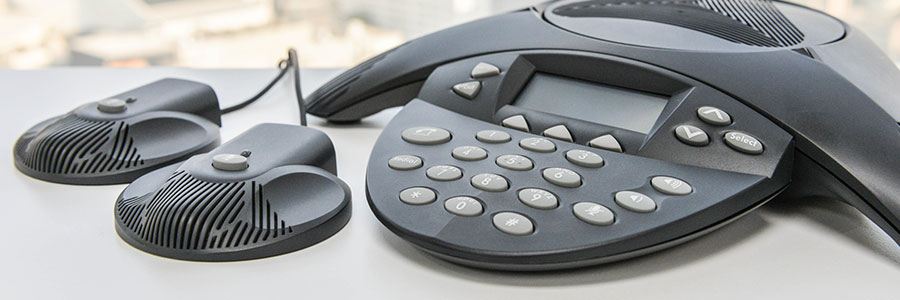Voice over Internet Protocol (VoIP) systems are a cost-effective way to improve business communication, as they are billed at a standard monthly fee. But aside from the monthly bill, your VoIP system will also come with other costs of ownership that you should know about.
What are the ownership costs of VoIP?
Why your company should record calls

If you own and operate a small- or medium-sized business that relies on positive word of mouth, you probably need to make sure the quality of your customer service is top-notch. It definitely pays to have excellent products and/or services in the first place, but it wouldn’t hurt to leverage other tools at your disposal.
Protect your VoIP systems against denial-of-service attacks

Telephony systems are crucial to business communications and operations and therefore need to be highly secure. Although malware and viruses are some of the most common threats to Voice over Internet Protocol (VoIP) systems, there are other little-known threats too, such as denial-of-service (DoS) attacks.
What do business phone systems look like today?

Although digital communication tools let businesses connect with customers and other stakeholders in an efficient manner, landlines are still used to communicate with business stakeholders. And for many organizations, determining whether to use internet phones or traditional landlines remains a concern.
Is AI-powered VoIP the next step?
Mobilize your VoIP systems

Businesses can benefit a lot from implementing a VoIP solution. However, without proper management and IT support for VoIP, you may see a negative impact on your productivity. You’ll experience limited communication from both customers and employees, especially members of your staff who are working remotely.
Here’s how to choose the right VoIP solution for your SMB

Many small- and mid-sized businesses (SMBs) turn to Voice over Internet Protocol (VoIP) as their telephony solution. VoIP allows them to make calls either through traditional desk phones (hardphones) or software-based phones (softphones). Find out the pros and cons of both phone options so you can decide which one fits your business best.
Should your business switch to VoIP phones?

Many businesses still rely heavily on landline telephones as the first point of contact with their customers. But thanks to technological advances that combine the best of traditional telephony and digital connectivity, businesses can now enjoy a more affordable and more reliable option: Voice over Internet Protocol (VoIP) phones.
5 Tips to combat VoIP eavesdropping

Eavesdropping is a form of cyberattack that has been around for years. Cybercriminals have been listening in on Voice over Internet Protocol (VoIP) phone calls since the technique was proven to be effective in obtaining valuable information, and they are showing no signs of stopping their malicious activities anytime soon.
What you need to know about VoIP Quality of Service

Voice over Internet Protocol (VoIP) has become a popular communications solution for small- and medium-sized businesses. There are so many providers and services to choose from, but how do you pick the right one? One crucial factor you should look into is a vendor’s Quality of Service (QoS).
What is QoS?
VoIP providers and IT experts define QoS as the overall performance of a VoIP system or network.


